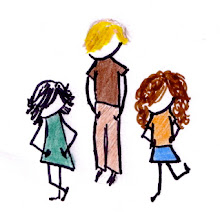I had been in Korea for six weeks on the morning the sirens went off. I had just stepped out of the shower, and the sound rang through me like a punch to the stomach.
I scurried around the apartment in a blur, pulling on clothes. As I pulled my shoes on, I pondered the chances of a misunderstanding. Maybe the noise was simply a neighbour's new ringtone. Maybe the siren noises were a sound test before a Korean boyband took the stage at an outdoor concert. Outside my apartment building on a Tuesday morning. It could happen, right?
Regardless, I had no clue what to do. I wasn’t just worried, but in a foreign country, I was completely helpless. And this was a new feeling.
When I arrived in Korea to teach English, I had been pretty confident that I would take to the lifestyle. I had been determined, as every newcomer must be, to explore and be educated in these new surroundings.
But six weeks in, my routine was carved out. True, I still didn't know much of the city's geography, I couldn't identify half the vegetables in my daily rice roll, and 99% of the Korean language remained a mystery. But I could navigate the subway, sing along to Korea's current #1 pop song, and remember my students' names. And this seemed fine; fantastically comfortable. Sometimes, I even had the audacity to be bored.
But that morning as I left my apartment, something was wrong. My 6-lane street, which normally bustles day and night with traffic, was empty. And I mean last-woman-in-the-world empty. The street vendors weren't crowded with hungry students. There were no businessmen sipping energy drinks outside the 7-Elevens. No one was outside the hospital in wheelchairs and crutches, smoking cigarettes. Empty.
I assumed, as anyone would during a South Korean air raid, that the north was attacking. That the nuclear bombs were on their way. That everyone I knew had cleverly evacuated and forgotten to send me a text message. In retrospect, this may have been a dramatic assumption, but my imagination was shaped by North American paranoia. At that moment, nuclear attack was the logical conclusion. My only thought was to run to work, where perhaps they had fashioned a bomb shelter out of the spare classroom.
In the elevator, I clutched my cellphone and scripted the goodbye phone call I would soon make to my parents. I was torn between falsely assuring (“I'm sure I can hop a plane out of here – I'll call once I'm back in the western hemisphere!”), or straight-up hysterical (“thank you for believing in me!”).
I dashed down the hallway and into the school, the wail of sirens still creeping in through the open windows. Inside, our receptionist was making photocopies. Calmly. Huh?
Still gripping my phone, I burst into the head teacher's office. He was at his desk, writing something in his dayplanner. Calmly. Huh? He looked up as I wheezed out questions.
“Whyaretheresirens? Whatsgoingon???”
He simply nodded and smiled, as though deciding that my panic was endearing.
“It is....” he paused to search his mind for the English word. I held my breath. “...a drill. Emergency drill. Practice.”
Oh.
After I caught my breath, I took note of the lessons learned from that stressful morning.
1) Koreans are damn good at drills. How did they clear the streets so quickly? Never again will I moan through a fire drill because I can’t take the elevator.
2) Though I’ve established a routine here, that doesn’t make Korea any more familiar or predictable.
Though I can sense a new grey hair or two from the stress, that panic was a nice wake-up call. When I see Koreans playing on their cellphones, holding hands with their boyfriends, sipping their Starbucks, it’s easy to forget that the culture is foreign from my own. When there’s so much to learn, settling for a routine is like wading the shallowest end of the expat experience. And why travel halfway around the world just to settle?
At the very least, I’ll come out with more stories like this one.
Wednesday 31 October 2007
Subscribe to:
Posts (Atom)



